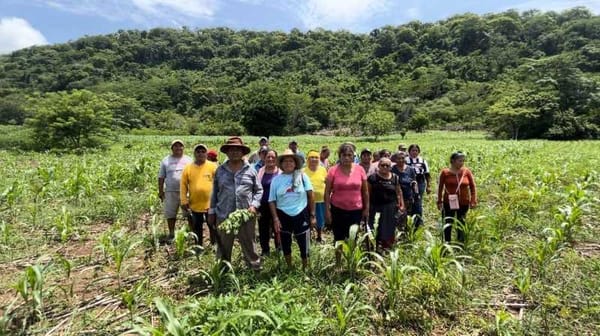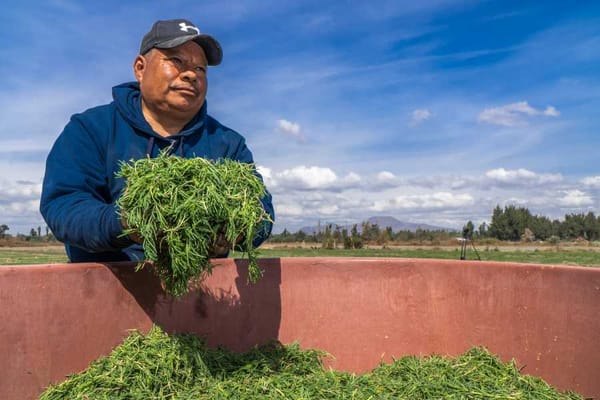Dolores Jimenez y Muro: Zapatista journalist and intellectual
Journalist Dolores Jiménez was born in 1848 when Mexico had lost almost half of its territory. She participated in civic poetry contests, which honored the heroes of the Independence and the struggles against foreign invasions.

Journalist Dolores Jimenez was born in 1848 when Mexico had lost almost half of its territory. Dolores belonged to a family that loved books. Since she was a child, Lola read a lot and wrote fluently. She participated in civic poetry contests, which honored the heroes of the Independence and struggles against foreign invasions.
Although in this era young women were not allowed to study, Lola overcame all obstacles and became a teacher and writer. She was aware of what was happening in the politics of the country and the world. She expressed her ideas on this subject, both with women her age and with young women.
She participated in the liberal clubs of San Luis Potosi that were centers of political action. Lola created women's political groups such as the Daughters of Cuauhtémoc. Together with her companions, she confronted the dictatorship of Porfirio Díaz. She fought for education for the people, the distribution of land, fair wages, and the non-discrimination of indigenous people.
Years later she organized demonstrations against the counter-revolutionary and usurper government of Victoriano Huerta. For this reason, she was taken to the Belén prison, where she met Juana Belén and other comrades. They all suffered punishment, isolation, and interrogations, but they never gave in.
Lola shared the ideals and causes of the Zapatista struggle for the restitution of land to the people. She joined the ranks of the Zapatistas with the rank of brigadier general. Emiliano Zapata asked her to write the prologue to the publication of the Plan de Ayala. She died when she was 77 years old. She was one of the most upright and advanced revolutionary intellectuals of her time.
Childhood
Dolores Jiménez was born in Aguascalientes, on June 7, 1848. Her parents were Mr. José María Jiménez, a lawyer and liberal official, and Mrs. Atilana Muro. These were years of war due to the intervention of the United States, and of defeat since Mexico lost almost half its territory. They were years of intense differences and political passion to decide the country's future.
When Lola was only nine years old, her family decided to settle in San Luis Potosi. They were never rich because then those who worked in the government earned little, instead, they lived the uncertainty of the wars and epidemics that ravaged the region.
Lola learned with a passion to be part of history, first as a poet, and then as a revolutionary intellectual.
Dolores grew up in a family that loved books and illustrations. Her parents encouraged her to be an educated woman and a good Christian; from her father, she took the passion for laws and justice, and from her mother faith and strength against adversities.
Lola read a lot and wrote fluently. Everyone encouraged her to participate in civic poetry contests, which were intended to honor the heroes of Independence and the struggles against foreign invasions. Her civic verses were published in the Diario Oficial and other print media.
Education
At this time, young women were not allowed to study, so they were educated at home in elementary things. They were watched a lot, especially in their reading; in some families, the girls were forbidden to read newspapers and novels. They were told that marriage was the highest aspiration of a woman and that if they wanted to get married they should not show their knowledge in front of the men, since discretion and prudence were valued above all.
Against all odds, Lola became a writer and teacher who learned to be aware of what was going on in intellectual and political circles, both at home and abroad. She expressed her thoughts freely in social circles and debated with the old and the young, especially with Camilo Arriaga, Paulino Martinez, Filomeno Mata, Juan Sarabia, and other lawyers or students from the Scientific and Literary Institute of San Luis.
At the end of the 19th century, liberal clubs began to abound throughout the country. In these clubs, citizens met to monitor the behavior of the authorities, the enforcement of the law, and thus be able to denounce injustices. In this way, they proposed to recover the ideals for which they had fought and which were embodied in the Constitution of 1857 and the Reform Laws.
In San Luis Potosi, these clubs were centers of reflection and political action of great importance, even in this city the Liberal Congress was held. Lola became part of the life of these clubs and created new political groups of women, such as the Daughters of Cuauhtémoc.
Activist
The conveners of the Liberal Congress, held in the Peace Theater of San Luis Potosi in 1901, were persecuted by the police. The discontent of the clergy and local elites led to repression, and the Potosi liberals were forced to move to Mexico City, where they found conditions to maintain their political activity.
In the city, Lola met faithful friends and close companions of the fight as Juana Belén Gutiérrez de Mendoza, Elisa Acuña Rosete, and Aurora Martinez. These women, members of the Liberal Party, published and disseminated the ideas to end the dictatorship of Porfirio Díaz. They never lived in peace. They learned how to make clandestine political work since they changed their names and addresses constantly. Being propagators of socialist ideas and critical writers had a high cost since they were imprisoned on various occasions.
In 1910, Dolores was identified as an opposition journalist against Diaz's regime and a precursor of the Revolution. Together with Juana Belén, she published in the magazine Vésper and collaborated in El Diario del Hogar, directed by Filomeno Mata. She also promoted the group known as Mexican Socialists.
Revolutionary
Likewise, she participated in the revolutionary struggle of Francisco I. Madero and was the main editor of the Political and Social Plan of Tacubaya, through which she requested the resignation of Porfirio Diaz, the fulfillment of the 1857 Constitution, and made new demands that were not included in Madero's plan, such as the restitution of land for peasants, the non-discrimination of indigenous people, the improvement of education and the payment of equal salaries for men and women. Ideas like these made her a necessary and respected intellectual in revolutionary groups.
In 1913, Victoriano Huerta took the presidency by force and ordered the assassination of President Madero and José María Pino Suárez, his vice president, as well as the imprisonment of many anti-reelection leaders and social fighters. Huerta believed this would stop the rebellions throughout the country, but he was wrong.
Lola, as a member and founder of the group Hijas de Cuauhtémoc, called for women to fight against Huerta's regime and achieved that a good number of them demonstrated in the streets; they were among the first women's demonstrations in favor of democracy.
When Paulino Martínez, director of the anti-reelection newspaper La Voz de Juárez, was arrested, Dolores took his place and dedicated herself to defending the Zapatista cause and released minutes and proclamations sent directly by Zapata. Due to this work, the police captured her along with Susana Barrios; both were sent to Veracruz, from where they were intended to be sent to Quintana Roo or Islas Marías. Thanks to the intervention of attorney Castaño, her process was followed in Mexico City.
Her days in prison
When Lola was taken to the Belén prison, Juana Belén and other companions were also there. They all suffered punishment, isolation, and interrogations, pressures used by their jailers to betray their ideals and their companions, but they never gave in.
Being a woman over 65 years old, imprisoned, threatened, mistreated, and sick, Dolores did not assume herself as a finished woman, but protested against the illegality with which they were kept in jail, aware of her moral and intellectual position within a revolution she knew in depth; she reiterated herself as a woman of intelligence who could contribute to the pacification of the country. She made this known to those who had her imprisoned through a wonderful letter, which is a sample of her advanced thinking in favor of pacification and democracy.
Lola was a revolutionary writer, committed to the social demands of the poor peasants. She shared the ideals and causes of the Zapatista struggle, especially land restitution and agrarian reform, which is why General Zapata invited her to join the ranks of the Zapatistas. Sometime later, he appointed her as a brigadier general and asked her to write the Proemio to the publication of the Plan de Ayala.
Feminist and journalist
During the hard years of the Zapatista guerrilla, Dolores fled through the mountains and hid in caves. She learned to live this way, lived with the Zapatistas on poor ranches, and shared the food and lodging of the indigenous communities, which made her ideals stronger. She was with them from 1914 until Zapata's death in 1919.
Lola continued to write and publish in Mexico City, she also continued to collaborate in rural education, living in poverty.
In 1925, when the new institutions of the revolutionary governments were just being established, this great woman died. She was 77 years old and one of the most complete and advanced revolutionary intellectuals of her time.
By Oresta López, National Institute of Historical Studies of the Mexican Revolutions




